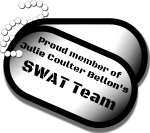 |
| Tour Schedule |
Good Music Brighter Children
Good Music Brighter Children is written for parents, educators or anyone who wants to build a bigger, better brain using music. Scientific studies indicate that children introduced to classical music at a young age read earlier and perform better on achievement tests. Adults can also revive tired brain cells using music. This book gives you a step-by-step program that any parent or individual can follow. You’ll discover how introducing your children to good music can accelerate language development, improve math and science skills, enhance physical coordination, strengthen memory and reading retention, and benefit children with learning disabilities. Discover how to choose an instrument and music teacher for your child; how to get your kids to practice and how character traits such as confidence, responsibility, creativity and teamwork are taught when learning a musical instrument. Learn how to introduce your child to the music community and how to appreciate all kinds of music. Last, if you want to advocate for music in your schools, this book gives the ammunition and data to do so. Also includes a 35-page Resource Section on the best music, books, and DVDs for kids.
I was excited to see a book like this come up for review. My mother was musically talented and taught many piano lessons while I was growing up, so I have heard about some of the research that has been done, like linking better reading and math comprehension to playing the piano. My mother had many parents tell her over the years how much learning the piano had helped their child in both of those areas. She never conducted a scientific study but she certainly heard of the benefits multiple times over.
This is a thick book and I haven't made my way through it entirely. It's a great resource book that I will refer to over and over. Each chapter stands on its own so you don't need to read them in order. There are five parts. The first deals with the power of music and music and the brain. Part two deals with music in the home and includes everything from choosing an instrument and teacher to practicing and learning values through music (there's an excerpt from this section below).
I currently have my two children in piano lessons. They have been begging me to quit but I won't let them. All of my siblings that quit taking lessons now regret it. My mother made me stick with it for many years, even when I told her I'd never thank her. Well, I did indeed thank her multiple times and am glad that I hung in there. My mother never taught us and I tried to teach my children at first but quickly abandoned that and now fully understand my mother's philosophy on that. I have found a wonderful teacher for my children who they absolutely love and they are learning so much from her!
Part three talks about advocating for music education in the schools and helping the learning disabled. Part four discusses supporting the arts in your community and how to starting your own orchestra. Part five is the finale and the final chapter is entitled "Building a Legacy: A Parent's Responsibility." This part deals with more than just music and she has some excellent ideas to grow closer as a family.
She also includes an extensive resource section at the very end with ideas of classical pieces to listen to, books to read relating to various subjects, DVD's, and websites to learn about various programs that are available.
This is a thick book and I haven't made my way through it entirely. It's a great resource book that I will refer to over and over. Each chapter stands on its own so you don't need to read them in order. There are five parts. The first deals with the power of music and music and the brain. Part two deals with music in the home and includes everything from choosing an instrument and teacher to practicing and learning values through music (there's an excerpt from this section below).
I currently have my two children in piano lessons. They have been begging me to quit but I won't let them. All of my siblings that quit taking lessons now regret it. My mother made me stick with it for many years, even when I told her I'd never thank her. Well, I did indeed thank her multiple times and am glad that I hung in there. My mother never taught us and I tried to teach my children at first but quickly abandoned that and now fully understand my mother's philosophy on that. I have found a wonderful teacher for my children who they absolutely love and they are learning so much from her!
Part three talks about advocating for music education in the schools and helping the learning disabled. Part four discusses supporting the arts in your community and how to starting your own orchestra. Part five is the finale and the final chapter is entitled "Building a Legacy: A Parent's Responsibility." This part deals with more than just music and she has some excellent ideas to grow closer as a family.
She also includes an extensive resource section at the very end with ideas of classical pieces to listen to, books to read relating to various subjects, DVD's, and websites to learn about various programs that are available.
This is an amazing book that is full of interesting studies and stories. It's wonderful to have all this information in one place! If you want to learn how to implement good music into your family life, this is a book you want to own!
My Rating=5 Stars
*I received a copy from the tour host for review. My opinion is 100% my own.*
Excerpt:
**Chapter Six: Noteworthy: Learning Values Through Music (pages 121-122)
Gaining Perseverance and Determination
We live in an age of instants: instant photocopies, instant food, instant photos, instant communications of all sorts, and more. Although many of these instants make our lives easier, they can also give our children a distorted view of life and how goals are achieved. Many children grow up expecting instant results in life, never learning to work for or wait for a reward. When things don’t come easily or immediately, they give up. For this reason, studying a musical instrument becomes a priceless lesson. As a child begins to learn to play the flute, for example, she soon realizes that this is not going to be done in an “instant.” It will take time, patience, perseverance, determination, and the ability to stick to the task, day after day, year after year, to play the flute with any degree of proficiency. Learning to read notes, to develop hand-eye coordination, to listen, and to count rhythms is a process involving perseverance. As she works through the difficulties and challenges of learning an instrument, she soon learns that determination and perseverance equal success. Likewise, the perseverance a child learns by practicing her instrument can be, as the experience of many demonstrate, transferred to other areas of her life. For instance, when subjects in school are difficult, she will continue to try her best until the assignment is completed, confident that eventually she will be successful. When life throws her a curve she will not give up, but will work harder with even greater diligence and perseverance until she reaches her goal.
Although most of the great composers suffered personal adversity, they persevered and went on to write beautiful sonatas, symphonies, and operas. Beethoven, despite his progressive deafness at an early age, wrote perhaps his greatest music after going completely deaf. Bach suffered blindness and diabetes, yet continued to compose music. George Frideric Handel suffered a debilitating stroke that put him in a rest home. The world felt that a great life had come to a close. With dogged persistence, he shuffled his way to the organ each night after everyone had gone to bed, forcing his fingers to slowly play each key on the organ. The nuns who heard him were amazed at his unfailing courage and determination. Eventually, he made a complete recovery and went on to write many great pieces of music.
Author Sharlene Habermeyer:
Sharlene Habermeyer, MA has spent over twenty-five years researching the effects of music in the brain development of children. She is passionate about how people of all ages learn and how music is a catalyst for learning. She holds a Bachelors of Fine Arts (BFA) degree in Art from Utah State University and a Masters degree in Education from Pepperdine University, Malibu, California.
In 1999, she started the Palos Verdes Regional Orchestra (now the Palos Verdes Regional Symphony Orchestra). It currently boasts over one-hundred members.
Sharlene’s initial inspiration for Good Music Brighter Children came from the extensive work she did with her severely learning disabled son, and finding that music was his strongest catalyst for learning she began passionately researching the effects music had on the developing and mature brain.
A college instructor, a popular speaker, and a consultant, she is the mother of five boys and lives with her husband in Torrance, California. She has spoken at parent conferences around the United States including the Parents as Teachers Conference (PAT) and the Crucial Years Conference in Missouri. In August 2014, she will be speaking at BYU Education Week.
Praise for the Book
Largest Independent Book Reviewer in the U.S.: Kirkus Indie, Kirkus Media, LLC
“With a scientist’s eye and an artist’s voice, Habermeyer examines everything from the benefits of music for the developing brain to music’s ability to improve cultural awareness. This is an encyclopedic, invaluable resource for anyone who believes in music education. A magnum opus, fact-filled and inspiring on the benefits of music.”
-Kirkus Indie, Kirkus Media, LLC
National Music Organization: Music and the Brain
“A great resource for both parents and teachers. Anyone interested in music or the overall well-being of children will not be able to put this book down.”
-Lisha Papert Lercari, Director, Music and the Brain
University Professor: Dr. James Catterall
Sharlene Habermeyer outlines why music is important to learning, and provides parents with excellent suggestions for launching and sustaining a musical influence in the lives of their children.”
-James S. Catterall, professor of education and co-director of Imagination Project at UCLA
Mother/Lawyer/Ballet Teacher: Shauna Bird Dunn
“Carefully researched and highly readable, Good Music, Brighter Children is written for musicians and non musicians alike. It is filled with wisdom, insight and helpful tips to bring music into the home for all ages and stages of childhood.”
-Shauna Bird Dunn, JD, MPA
Utah Young Mother of the Year, 2010
Blog Tour Giveaway
$25 Amazon Gift Card or Paypal Cash
Ends 10/15/14
Open only to those who can legally enter, receive and use an Amazon.com Gift Code or Paypal Cash. Winning Entry will be verified prior to prize being awarded. No purchase necessary. You must be 18 or older to enter or have your parent enter for you. The winner will be chosen by rafflecopter and announced here as well as emailed and will have 48 hours to respond or a new winner will be chosen. This giveaway is in no way associated with Facebook, Twitter, Rafflecopter or any other entity unless otherwise specified. The number of eligible entries received determines the odds of winning. Giveaway was organized by Kathy from I Am A Reader and sponsored by the author. VOID WHERE PROHIBITED BY LAW.
a Rafflecopter giveaway










2 comments:
I love your take on this! Music is important. I wish I would've pushed my older ones to continue on.
I love music...I wish I could teach it to my children....the only thing I can do is sing :)...
Post a Comment